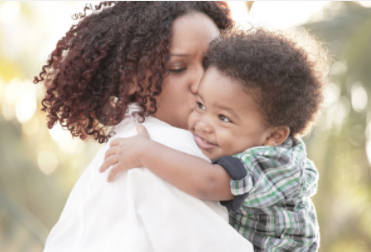Find the key to making teachable moments
This week more than a few friends have shared challenges they are having with their kids. If that’s you, know you aren’t alone. This looong season is getting to us and to our kids, and it can become overwhelming at times.
Even at times when we don’t have extra burdens, we can be worn thin by the day-to-day demands of motherhood. Through it all, we want to maintain consistency and a semblance of peace in our homes. I want to share some thoughts I’ve had lately about discipline. Especially, I want to share a gem about finding teachable moments with your children.

What is Discipline?
How we answer the question “What is Discipline?” makes all the difference in the world. As a matter of fact, parenting experts and whole schools of thought have risen up around how we define discipline. And we feel STRONGLY about it. Friends might part ways if they don’t share a discipline approach with friends.
It’s big stuff.
I’m going to tell you what I think the essence of discipline is–not how to put it in place, or what specific techniques to use–but the roots of discipline.
Discipline comes from the Latin word discipulus, which means pupil. It is the source of the word disciple. A disciple is someone who followed Jesus, learning to be like Him, to live according to His ways.
So, as we disciple–or discipline–our children, we are first showing, and second telling our children how to live well. We guide (or train up) our children in the way they should go. Discipline is instruction in right living.
When I think of discipline, I think of three components: relationship, limits, and outcomes.

The Three Elements of Effective Discipline
Relationship
Our relationship with our children is the foundation of all discipline. Just as God seeks relationship with us over all things, we need to value our relationship with our children and protect it as we discipline them.
Now, I know we can get really frustrated and be completely at the end of our ropes when our children act out or continually test our limits. It’s hard to be our best, and to preserve a sweet bond in those moments. We are ALL going to fall down on the job as we parent. The point is, prioritize your relationship–like God does with us. And when you mess up, restore as soon as you are able.
Limits
Healthy limits = healthy home.
Our children (like us) need guidelines and structure. Bedtimes, mealtimes, expectations as to how we treat one another, what is allowed and what is not … are all important. As parents, we set limits.
Consequences
Consequences sometimes happen on their own, because the ways of God pervade creation and when we walk contrary to His ways, outcomes happen. When we walk rightly, we often experience blessings. Life isn’t that straightforward, of course, but we do know from experience and from God’s Word that choosing well results in ultimate gain.
In discipline (training our children) we give or allow consequences when our children stay within the limits (blessings) and when they don’t (natural and logical consequences). Limits should be age-appropriate, and consequences should be well-matched to the problem behavior and should be used to instruct and lead our child forward into better choices in the future.

When to Discipline
This week, as I disciplined my pre-teen son, and guided my college age son through some issues, I started looking more deeply for what we call “teachable moments.” To me, these are the moments when I can help cultivate their character as I interact with them.
I feel like I more deeply internalized a truth I learned a while ago when I read the words of Francois Fenelon (who lived in the late 1600s):
Don’t train your child in his first emotion or yours.
Translation: if you’re upset, or if they are, it’s not time to discipline.
Why?
For one thing, when we are emotional (angry, burnt out, ragged), we aren’t the moms we want to be. We tend to lash out or do some classic retaliation parenting (when we use consequences to pay back and gain control, not to teach).
Again — we’ve all been there. I’m not suggesting you bathe in mom guilt. We’re talking about being more aware. We need to give ourselves buckets of grace, but also we need to make needed changes.
Commit to avoid disciplining your child when you are overly emotional. God’s kindness leads to repentance. Our kindness is key to our child’s making a heart-based decision to do what is right.
In order to be kind, we must be calm.
Since the goal of discipline is to teach, we want to impact our child for the future. If we merely dish out angry outcomes, our child doesn’t focus as much on the lesson as they do our emotional outburst.
It’s equally obvious that when our children are super emotional, they are often too overwrought to receive a lesson of any sort. Again, our goal of discipline is (say it with me) instruction. We want our child to choose well next time, and the time after that, and for the rest of their lives–even when we aren’t there to guide them, especially then. We are trying to train a heart attitude in our child. To do that, we need them to receive our training. If they are all worked up, they can’t learn what they need to learn.

How to Multiply Teachable Moments
Sooooo … this week, during my parenting epiphany, I asked myself: “How do I gather up teachable moments–those times when my child’s heart is open and I can pour in and make a genuine difference?”
For both boys, my 11yo and my 18yo, I realized the golden teachable moment comes as soon as we both are calm. I can ask them a kind, self-reflective question and we can talk through what happened. When they are not defensive, and I’m not riled up, they can receive the lesson and that lesson can change how they choose to do things next time.
Often it looks like me asking my child what they think they did wrong, or how what they did impacted others. Then I ask them what they would do differently and what they want to do to make up for what went wrong. Sometimes I ask other questions–because parenting isn’t a formula. Oh, man, we want that formula. Instead we get a guide and we get grace, and we get to keep growing.
Talking through choices and seeking teachable moments works with young children (as young as three or four) if you explain things at their level. It works with children all the way up to young adults. The more aware I am to seek out teachable moments, the more I am finding them. And I’m seeing my boys become more aware of their own need to grow, and they view me as an ally in that process instead of someone to be feared, resisted, or resented.
So, let’s aim to calm down and then grab up those teachable moments!
I’d love to pour into your motherhood weekly.
If you want to sign up for my weekly email where I send you a little encouragement, a practical parenting tip, and a family-tested, family-loved recipe, you can sign up here.
I’m working on a new series of what I call “Mini-books for Moms.” The first one will be on Avoiding Power Struggles. When you sign up for my email, I will send you a copy for FREE.
You can also follow my blog with Bloglovin
The post Find the key to making teachable moments appeared first on Patty H. Scott.



